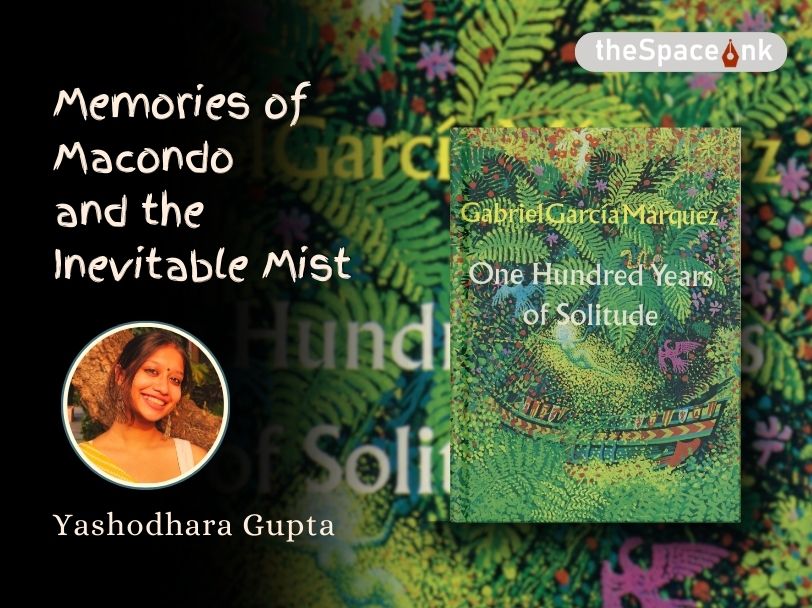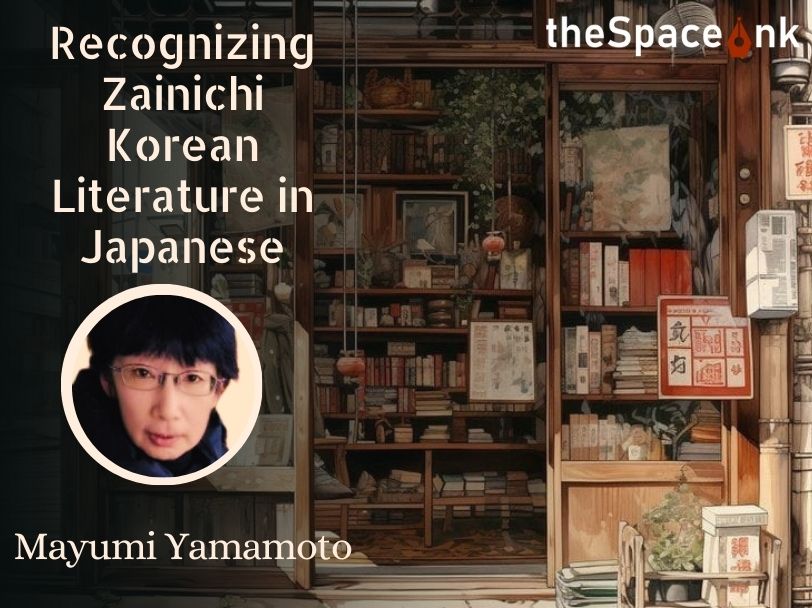It began one day in 1973.
If my memory serves me correctly, what spurred my interest in writing was an encounter with a Japanese-born Korean classmate in my high school days. Zainichi Korean
The seating order in our classroom was based on our family names, alphabetically. She used the same Japanese family name as mine to hide her Korean identity. So, we were seatmates. And she was the one who initiated our first conversation. She was quite communicative unlike me. Soon we discovered similarities between us. Our chemistry was great. Then we shared our readings and written pieces about language and literature, which were our common interests. Zainichi Korean
We were students at a university-affiliated girls’ high school run on Christian principles and were obliged to attend worship services in the chapel every morning. We used to sit next to each other and enjoyed whispering in each other’s ear during the sermon. Zainichi Korean
One grey and chilly winter day after school, she confided to me that she would kill herself on Christmas Day. And then she instructed me to “not tell anybody, especially our class teacher.” I was embarrassed and confused since I didn’t know her real identity. I believed that she was a Japanese. I could barely recall the other details of our conversation, but I do remember her following words: “What has caused the present situation? Isn’t it the war?”
Back then, I had no idea why she brought up the war, which in those days meant the Second World War among us. And since it was already December of 1973 when we had our morbid conversation, by then the war had already eclipsed into a three-decade-old historical footnote—as far as we Japanese teenagers were concerned.

“There was a period when our nation brought to bear great sufferings upon the people of the Korean Peninsula. The deep sorrow that I feel over this will never be forgotten.” ~ Akihito, former Emperor of Japan on the treatment of Koreans by the Japanese.
I had been on the fence for several days on whether to tell or not, and I finally decided to consult our class teacher, who also manifested himself as an artist of abstract oil paintings. He spoke passionately about the works of Egon Schiele and Alberto Giacometti in our class. We liked him. He taught us English as a professional teacher and studied French literature as an earnest graduate student in the university located in the same compound.
On the day when I consulted him, he revealed to me that my classmate was not a Japanese but a Korean.
I immediately understood what it meant in our society. My father had a Korean friend, too, and my mother didn’t like it. I witnessed their arguments about this matter when my father wanted to invite him with his other friends to our house for dinner. He loved to treat his friends to foods and drinks at home, but she refused to host his Korean friend. I learned how racist psychology could work irrationally by observing mother’s attitude and utterances. And I knew that she was not an exception. I perceived her as a showcase of our society, but a negative one. For me, she was a good example of who not to be. Zainichi KoreanZainichi Korean
My Korean friend ultimately stayed her hand come Christmas Day. Later, she confessed that she didn’t have the courage to uncover her real identity to me by herself. So, it was good, according to her, that our teacher disclosed the truth to me. Even though she was just a high school student, she was already an aspiring writer and encouraged me to write as well. Zainichi KoreanZainichi Korean
Also Read: Hideo: From Japanese Appropriation to Appreciation
My first-ever work that appeared in a literary magazine was an essay about Koreans in Japan. It was in 1983 when I was a graduate student. My essay was about the inner conflict between language and identity—how the Japanese language had been haunting the Korean writers so much more poignantly compared to native writers of British colonies who have become quite comfortable in using English, the language of their colonizers in their works. How the Japanese imperial government forged the linguistic ideology as a device of imperialism was briefly discussed. I also mentioned how profoundly the ideology was inculcated in our psychology.
Under Japanese colonial rule, it was prohibited to use the Korean language to use in public and in schools. Even after the liberation of the Korean peninsula with the surrender of Japan in 1945, the Allied Forces-controlled Japanese government did not allow Koreans in Japan to run their own schools. They were often suspected by the authorities as current or potential communist spies during the Cold War.
These complicated and uneasy international circumstances further discouraged them from learning their own language.
Besides the first generation, most Japanese-born Koreans were/are native speakers of Japanese without being articulate in the Korean language, unless they studied in Korean schools affiliated with North Korea’s organization in Japan.
My Korean friend selected English literature as her major in college and went to the UK for further studies. Her choice seemed natural to me because when it came to Korea, the literature was not globally recognized yet. Worse, it was primarily associated with authoritarian dictatorship.
The magazine which accepted my essay, named “Sanzenri,” was established in 1975 by Korean writers in Japan. Kim Sokpom, born in Osaka in 1925, was one of the founding members and I was strongly impressed by his book, Curse of Words—Zainichi Korean Literature and the Japanese Language published in 1971. He claimed that the Japanese language literature written by Korean novelists is distinct from the literature written by Japanese writers, and he categorized it as Zainichi Korean Literature.
The book tells of their struggles as they grapple with the Japanese language: the medium in which they had to write, irrespective of, or against, their will. The language permeated their body, circulated through their blood and ingrained in their lives.
They couldn’t help but incessantly ask themselves whether it was their choice or destiny to utilize the Japanese language for their creative writing.
(Kim Sokpom wrote several pieces in Korean when he was young.) Those days, Koreans in Japan were stigmatized as “the Koreans who don’t know the language” and were derogated as “half-Japanese” by the Koreans in Korea. That’s because the Japanese imperialists had advocated that the language was the blood of the nation.
I no longer remember the exact circumstances that granted me the opportunity to write for the magazine. Most probably, I met this great Korean writer somewhere in Shinjuku, at a gathering of writers and editors, because a photo of his during that period evokes a memory of his face, and his words, “How on earth have you, a Japanese young lady, an interest in our literature—the literature written by Koreans in the Japanese language!?” His seven-volume masterpiece is titled Volcano Island (1976-1997), and was bestowed multiple awards in Japan during the last two decades of the previous century. Recently, I heard that it is undergoing English translation by a Korean-American scholar.
Image Courtesy: Wikiquote
Zainichi Korean
Mayumi Yamamoto is a writer and academic based in Kyoto, Japan. Her poems have appeared in Literary Yard, and some opinions in Indian Periodical. She authored several published books in the Japanese language.









One Response
This is a very well-structured article—kudos to you!